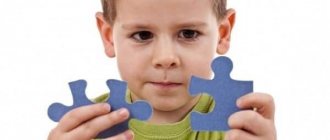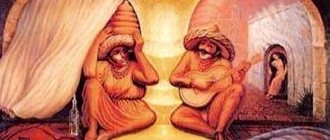What is a psychological personality characteristic
Psychological characteristics are a set of components of the personality structure that determine the individual’s orientation, character traits and style of activity. Psychological characteristics are based on stable human properties: type of nervous system, temperament, nationality, abilities, qualities of mind.
The psychological characteristics of a person undergo some changes in the process of ontogenetic development, family upbringing and systematic education. Individual elements of psychological characteristics are formed only as a result of the development of character and the development of stable interests of the individual. Family education and schooling are being replaced by self-development and self-education of a person. Starting from adolescence, people consciously form their psychological portrait.
The main components of psychological characteristics are: resilience, unity and activity. On their basis, a person’s value orientations, worldview, style of activity and communication are formed. The dynamic properties of a person allow him to master social roles, achieve his goals, and maintain his socio-psychological status.
The characteristics of a person’s abilities determine his individuality.
List of characteristics associated with an individual
There is a grouping of certain signs that make it possible to recognize a person, namely:
- a subject who is aware of the totality of his inherent social features;
- a person participating in the socio-cultural life of society;
- a person who has individual characteristics that are manifested in social relationships through communication and work activity;
- the individual is clearly aware of his uniqueness and significance in the social world.
The concept of personality implies that the subject has a clearly expressed own opinion in relation to what is happening around him, that is, there is a worldview. An individual always asks philosophical questions about life, about its own significance in this world. In other words, there are ideas, views and life values that shape a given person.
Psychological structure of personality
In psychology, the personality structure includes its main characteristics:
- Biological features. These include: the type of nervous system and its properties, the relationship between the processes of excitation and inhibition in it, and the performance of the brain.
- Individual typological qualities. This block is determined by the characteristics of family upbringing and the type of parent-child relationships.
- Character traits that appear in the process of socialization of an individual. The determining factors for the formation of this element of the personal structure are the child’s socio-psychological status in the group of peers, the level of development of his communication skills, and stress resistance.
- Human life experience. It is often understood as an individual’s adaptive abilities, flexibility, ability to analyze one’s actions, and make independent decisions.
Definition of the concept
Since the phenomenon of personality is a subject of study not only in psychology, but also in other humanities, the term does not have an unambiguous definition. For a better understanding of what a person is, three main definitions will be given below.
Personality is a set of individual qualities of a person (thinking, will, and so on) that determine his behavior in society, speak about his values, life experience, and aspirations.
In other words, the psychological difference between one individual and another characterizes his personality.
A person can be defined as a subject of society with a set of roles (social and personal), certain habits and experiences.
This term also refers to a person who is completely responsible for all aspects of his life.
Basic psychological characteristics of personality
A general idea of a communication partner is made up of the basic psychological characteristics of his personality.
Interests and inclinations
Among all the psychological characteristics, when drawing up a personality portrait, experts first of all highlight the interests and inclinations of the individual. It is under the influence of a person’s interests that his attitude to reality is formed. The inclinations of the individual form the basis of the orientation and worldview of the individual, which explain certain behavioral reactions.
Interest, being a source of curiosity, directs our attention to certain things. Tendencies push a person towards certain types of activities. In an effort to learn something new, a person is driven by interest. When he begins voluntary practical activity, which is based on creativity, his actions are determined by his inclinations.
There are different approaches to classifying interests:
- An individual's interest can be passive or active. With passive interest, a person needs a mentor who will guide and correct his actions: recommend popular scientific literature, suggest ways to perform activities. With active interest, a person independently engages in one activity or another, reads relevant literature, and tries different work techniques. In the process of active interest, an individual’s individual style of activity is formed.
- According to their orientation, interests are classified into spiritual, social, political, and economic.
- Based on the number of people showing interest, interests can be divided into individual, public and group.
The origin of a person’s interests and inclinations is based on his needs.
If a person strives to satisfy only physiological needs, life seems uninteresting and monotonous to him. Deep interest in a certain type of activity and stable inclinations fill a person’s life with meaning and stimulate his self-development.
A person may have broad interests and be inclined towards different types of activities - in this case they speak of broad erudition and multidirectional development. Also, a person may have a pronounced interest in a particular area of activity - in this case they speak of a deep, sustainable interest of the individual. If, at the same time, a person’s interests and inclinations are subordinate to his life goal and do not interfere with conscientious work, their presence is regarded as a positive socio-psychological characteristic.
An example of the above can be a hobby. If doing what you love does not interfere with work and does not crowd out communication with friends from a person’s life, then it undoubtedly characterizes the individual in a positive way.
You can meet people whose interests and hobbies change quickly. Such people are keen, but not passionate. They are attracted to something new, bright, unusual. For example, they may enroll in a historical fencing class, but quit training after receiving the first injury. Their inclinations are due to natural impressionability. Having tried themselves in a new type of activity, they lose interest in it. Such qualities as inconstancy and impulsiveness will certainly find a place in their psychological portrait. It is very difficult for them to achieve success in any type of activity.
Abilities and giftedness
Ability is a person's biological predisposition to science, sports, or the arts.
Abilities as a psychological characteristic of a person determine the success of a person in performing certain actions. An example of an ability that influences a person’s psychological characteristics is observation. As a rule, teachers, writers, and drivers have this property.
In almost every type of professional activity, to successfully perform their job duties, a person needs the following abilities:
- visual memory;
- spatial thinking and imagination;
- concentration of attention.
When compiling a psychological profile, experts rely on the following types of abilities:
- Intellectual abilities. They provide rapid perception of information, its processing, storage in memory for a long time, as well as the ability of a person to apply existing theoretical knowledge in practice.
- Mathematical abilities. They explain man's inclination towards exact sciences. High development of mathematical abilities is often associated with good logical thinking. These mental properties are essential for accountants, programmers, physicists, mathematicians and economists.
- Technical ability. This group of abilities is needed by people involved in the design and development of innovative mechanisms.
- Creative skills. This type of ability is based on the inherent human imagination and ability to express fantasy.
- Communication skills. With their help, a person easily finds a common language with representatives of any social groups, shows empathy, and wins over them. Journalists, psychologists, politicians, and teachers use communication skills in their professional activities.
- Physical abilities. This group of abilities provides a person with sporting success.
- Literary ability. They explain the writing talent and poetic skills of people.
- Musical abilities. These include a sense of rhythm, a harmonic and melodic ear, and the ability to independently compose original melodies.
Abilities develop in the process of a person mastering practical activities. The basis for the development of abilities is inclinations. If nature has awarded a person with many inclinations, then they speak of talent, which allows him to be successful in various fields of science and art.
A synonymous concept for giftedness is talent, which determines a person’s ability to solve problems in a non-standard way. Talent is not a biological characteristic of a person. It grows out of a person’s interest in a certain activity and manifests itself in the process of performing this activity.
However, without specially organized systematic training, a naturally gifted person will not be able to become successful. In the learning process, the totality of natural inclinations determines the strength of knowledge acquisition and the rapid formation of skills and abilities.
It is impossible to equate a person’s talent and mastery in a particular activity, since giftedness represents a high level of development of natural inclinations, and mastery is the result of conscious work, which is based on the totality of theoretical knowledge, individual skills and abilities of a person.
The pace of development of abilities depends on the presence of giftedness, but learning is decisive in this process. If a person becomes a master of his craft, this means that a new level of development of abilities opens up for him.
It is important to understand that the lack of natural inclinations on the path to mastery in a particular type of activity can be successfully compensated for by such psychological characteristics of a person as: determination, perseverance, hard work, responsibility. These personality traits create the prerequisites for mastering almost any type of activity, provided there is a strong interest in it.
Thus, success in a particular activity can be explained by a variety of human abilities. The lack of some abilities is compensated by the high development of others. This means that the path to a dream is open to everyone. If a person is prepared for difficulties in the process of climbing a mountain, success will certainly await him at the end of the journey.
Every person has abilities. There is no point in comparing your own achievements with the achievements of other people. For the development of society, different talents are needed, which cannot belong to one person. When choosing a life path and profession, you should listen to yourself. After all, work that fully meets the interests and inclinations of an individual brings her not only material rewards, but also pleasure.
Temperament
Temperament is an innate psychological characteristic of a person. Classic patterns of temperament are:
- Sanguine. This is a cheerful person whose feelings quickly replace one another, as they are superficial. The main features of his psychological characteristics are: optimism, carelessness, initiative, multidirectional interests. He is fussy, his movements are fast and precise. The nervous system of a sanguine person is too mobile.
- Choleric. The main psychological characteristics of such a person are: explosive temper, hot temper, excitability, aggressiveness. He reacts vividly to events. His movements and speech are sharp, impetuous, and the pace of work is high. Choleric people lack a balance between the processes of excitation and inhibition in the nervous system.
- Phlegmatic person. This is a slow person who does not tend to demonstrate his experiences. His movements are smooth, his gait is measured. The main features of his psychological characteristics are calmness, prudence, and balance. The nervous system of a phlegmatic person is inactive.
- Melancholic. Such a person is distinguished by impressionability, vulnerability and touchiness. A melancholic person keeps his experiences to himself. Very often, melancholic people demonstrate high development of creative abilities.
“Pure” examples of temperament are rare in everyday life. Most often, the dominant type of temperament is complemented by some traits of another. For example: a phlegmatic person with a melancholic dominant, a choleric person with a sanguine dominant. The psychological characteristics of a person in this case will depend on the situation and circumstances.
So, temperament is a set of psychological characteristics of a person that determines a person’s general mobility, the speed at which his feelings arise and their severity, and the peculiarities of the manifestation of his emotional experiences. Each person needs to learn to subjugate his temperament - then the positive traits of his personality will come to the fore.
Character
Character is the psychological core of personality, which is formed from early childhood to adolescence. The structure of this psychological characteristic includes cognitive processes, emotionality, willpower, individual style of activity, and value orientations. Character traits determine a person’s attitude towards work. They are manifested in the motives of his activities, in the methods that he chooses to solve the assigned problems.
The psychological characteristics of a person are based on the following character traits:
- General character traits. They form the psychological type of the individual. These include: consistency, activity, integrity, honesty, discipline, courage.
- Character traits that reflect an individual’s self-attitude and self-perception. These are: modesty, self-esteem, shyness, touchiness, selfishness and egocentrism.
- Character traits that reflect an individual's attitude towards other people. This group includes: sociability, sensitivity, openness, politeness, willingness to help.
- Character traits that reflect an individual's attitude towards work. Among them: hard work, perseverance, initiative, accuracy, conscientiousness, responsibility.
Characterological features form the basis of a person’s worldview.
Knowing the characteristics of a person’s character allows us to predict his reactions. Systematic work on oneself allows a person to form his character, develop positive qualities in himself and eliminate negative ones.
List of positive personality traits of a person starting with the letters A, B, C: description, adjectives, words
The letter a:
- Authoritative – inspiring respect, distinguished from others by representativeness, greatness, status.
- Aristocratic is a person who has a lot of refined and cultural qualities that seem to elevate him above other people.
- Artistic – a person with extraordinary creative abilities.
- Angelic is a person whose all qualities are so positive and positive that he can only be compared to an angel.
- Active - a person who does not like to sit in one place and is always in the thick of things.
- Neat - a person distinguished by special positive qualities, diligent and clean.
- Appetizing - a person who is quite well-fed, but not overweight, who evokes tenderness and sympathy, as well as sexual desire.
- Athletic – a person with a beautiful and toned figure, who is athletically trained.
- Atypical - a person who is not like everyone else, he is unusual, extraordinary
- Avant-garde is a person with an original style of thinking and unusual appearance.
Letter B:
- Impeccable – ideal, possessing qualities that distinguish a person from others
- Selfless - a very kind person who is able to help others without demanding anything in return
- Catchy - a person who has a pleasant and bright appearance that attracts and makes him stand out from the crowd
- Carefree - a person whose thoughts are carefree
- Peerless - a person who is not like any other
- Exciting - a person who makes you think about yourself, exciting your thoughts and body
- Priceless - a person who has enormous value that is so high that it cannot be determined
- Blessed is a person who brings joy and happiness.
- Prosperous - a person with exceptional abilities, very kind and positive
- Blessed is a very happy person
- Brilliant - a person whose actions and deeds are very good and are always a level different from the rest
- Lively - a person with a bright and violent character
- Brilliant - a person who is constantly distinguished by something: character, good deeds, appearance
- Cheerful - a very active, agile person who is always in the center of events
- Divine - a person whose deeds, appearance or actions are compared to God
- Experienced - a person with experience and a “baggage” of certain knowledge
Letter B:
- Polite - a well-mannered and kind person who knows how to speak correctly and act well with others
- A great person is a person whose actions and deeds deserve respect.
- Cheerful – a positive person, a person with a sense of humor
- Generous - a very kind person who knows how to forgive
- Attentive - a person who is sensitive to people and important life events
- Inspirational - a person who is permeated by inspiration, he is very sensual
- Loyal – a person who is devoted to someone or something
- Airy - a person with whom it is easy to communicate, he is never annoying
- Omnipresent - a person who knows everything and tries to go everywhere
- Prominent - a person who cannot be ignored or his abilities cannot be ignored
- Magnificent - one who has special abilities incomparable to others
- Exciting – a person who excites and evokes sexual fantasies
- Magical - one whose merits are so good that they seem unreal
- Impressive - the deeds or appearance of such a person leave an impression
- Inflammatory - a person whose appearance or actions leave a warm and positive impression
- Free - a person with free thoughts or behavior
- Almighty - a person who can do anything
Positive human qualities
Methodology for compiling psychological characteristics
Psychological characteristics of a person are compiled by psychologists using the following methods:
- Observation. Through specially organized observation, the psychologist receives information about the characteristics of an individual’s behavior. In psychological characteristics, observation results indirectly reflect personality characteristics.
- Psychodiagnostic methods. Using personality tests and questionnaires, the psychologist determines the client’s temperament type, his interests and inclinations, and the prevailing motives for his activity. This information is the main one in the psychological characteristics.
- Sociometry. With the help of this diagnostic tool, the psychologist receives information about the socio-psychological status of the individual in the educational or work community. Sociometry allows us to identify the characteristics of a person’s interpersonal interaction with friends and colleagues.
- Interview. If sufficient information about a person cannot be obtained through tests, the psychologist develops a series of questions that he asks the client. This method of collecting information is used to clarify facts and eliminate contradictions.
Psychological characteristics begin with the listing of a person’s personal data: indicating the last name, first name and patronymic, date of birth, place of residence, reporting information about family members and characteristics of family upbringing. The following are described:
- inclinations and interests;
- personality abilities;
- characteristics of temperament and character;
- a person's attitude towards himself;
- a person's attitude towards other people;
- a person's attitude towards work.
An example of a person's psychological characteristics
Letovaltsev Andrey Yurievich
Date 04/19/2008.
Mother: Letovaltseva Anna Gennadievna.
Father: Letovaltsev Yuri Alekseevich.
Place of residence: Novodvinsk
The child is raised in a complete family. Parents take an active part in the boy's life. For Andrey, his older brother is a role model.
The boy shows interest in exact sciences and has a high level of development of logical thinking. For two years, Andrey has been attending robotics courses and participating in city and regional competitions.
The boy's level of voluntary attention is above average. There are no signs of fatigue when performing work. The pace of work is high.
The boy has a high level of visual memory development. Auditory memory is moderately developed. The dominant channel for obtaining information is visual.
The predominant motive for activity is to avoid failure. The level of anxiety corresponds to the age norm.
In the course of solving intellectual problems, Andrey demonstrates independence and rationality. Willingly comes to the aid of his comrades. Shows interest in pair work. When working in a group, he imposes his opinion on his comrades and makes many comments. He takes criticism addressed to him painfully.
In a group of peers, the boy strives to become a leader. He is ambitious and active. Andrey tries to assert himself at the expense of other children. However, in order to become a leader, the boy lacks sensitivity and attentiveness to others. In addition, the boy has high self-esteem.
Andrey has a choleric type of temperament. The young man is emotional, assertive, and purposeful. He often has conflicts in his relationships with peers. Poor development of communication skills does not allow making concessions and finding a compromise solution to controversial situations. The boy is characterized by sudden mood changes.
There are outbreaks of aggression in behavior. It is difficult for a boy to control his emotional reactions.
Based on the results of psychological diagnostics, Andrey can be recommended a course of individual sessions with a psychologist aimed at correcting the emotional-volitional sphere. The boy will also benefit from group classes in the form of training to develop communication skills.
Family education
Personal characteristics, as we said above, are a whole complex of characteristics, including positive and negative qualities of a person. They appear from childhood, it’s no secret. As well as the disposition to certain types of activities.
Education plays a huge role in the development of personality. Now it has become fashionable to indulge children and turn a blind eye to such actions for which even twenty years ago the offspring would be punished. The result of such upbringing will be disastrous, because children need not only positive reinforcement, but also negative.
Surely, more than once you have seen a child scream at the top of his lungs, demanding something from his mother. And she gently coos over him, persuades him, or simply gives him what he wants. This is positive reinforcement of unwanted behavior. How will such a child grow up? He will become a good manipulator, accustomed to getting his way on demand. Therefore, it is important to put the child in his place in time, letting him understand that not everything required is fulfilled, and bad behavior leads to punishment.
The peculiarities of personal development lie in the fact that parents guide their child in the right direction, taking into account his inclinations and characteristics. If a child is obsessed with animals and declares that he wants to become a veterinarian, there is no need to dismiss him, citing an unconscious age. On the contrary, encourage your offspring’s desire, buy him interesting books on this topic, show him films. Over time, the child may abandon the conceived idea, continuing to search for himself, or perhaps establish himself in the chosen future field of activity.
Determination methods
To obtain the information of interest, researchers use various techniques:
- External observation. A purposeful technique that is necessary to obtain information about the manifestations of the psyche and behavior of the subject. Observation requires expenditure of funds, time, and preparation.
- Introspection or self-observation. The individual must independently observe his own mental manifestations in different situations. The information received cannot be considered adequate, but it is suitable for comparison with the opinions of others.
- Tests, questionnaires. Developed on the basis of a conversation between a psychologist and a subject. They allow one to determine temperament, motives, and inclinations towards a particular type of activity, and to identify factors influencing an individual’s behavior.
- Sociometry is psychological research used to study interpersonal relationships in various social groups between individuals.
- Experiment - the study of the characteristics of a person’s behavior depending on changes in environmental factors. Laboratory equipment may be used to conduct experiments.
- Interview, questionnaire. The specialist prepares a series of written or oral questions to obtain the information of interest.
Cholerics
Personal characteristics of a person with a choleric type of higher nervous activity include the following emotional characteristics:
- Restlessness, because choleric people find it difficult to focus on one thing. They are capable of starting a business, but not finishing it.
- Impulsiveness - such people live by emotions. Under the influence of impulse, they commit the most unpredictable actions, for which they blame themselves.
- Rapid arousal, which is due to temperament. They lose their temper very easily and are not shy about showing emotions. But the outbreak quickly fades away, and the choleric person becomes ashamed of the negative emotions shown.
- Burnout. Routine work is not for choleric people, nor are things that require maximum concentration. These people, due to their emotional and personal characteristics, quickly get tired and burn out.
Phlegmatic people
These people are difficult to move, they are inert and often go with the flow. The main personal characteristics are:
- Closedness. It does not manifest itself in such volumes as in the same melancholic person, but people with this type of GNI prefer to carry everything within themselves and once again not open up to others.
- Tendency to loneliness. Despite the outward friendliness of a phlegmatic person, the best company for him is his own person.
- Poor adaptability. For a phlegmatic person, a global life change will be a real tragedy. These people prefer predictability and stability.
Types of volitional qualities
The “foundation” is willpower - a special state that can be called a kind of mental habit. It is not always congenital. In most cases, people have to train it: by realizing their desires and aspirations.
To give a more precise definition, it is the ability of an individual to mobilize his body and psyche in such a way as to realize a specific goal. If he does not deviate from the task, does not stop acting halfway to success and does not give up after the first failure, then we can assume that he has no problems with this character trait.
The set of features characterizing this concept includes:
- Independence. This is the ability to work without outside help, as well as the ability to listen critically to advice, analyzing it from the point of view of one’s own beliefs and views. Such a person can organize his own activities. She does not wait for prompts, and also actively defends her own opinion.
- Initiative is the skill to search and find non-standard solutions and ways to implement them.
This also includes willpower - the skill of maintaining the level of effort. In other words, a person maintains strength for a long time. After all, anyone can concentrate for a day, but persistently moving forward for many months is a more difficult problem.
Ears
Look at the pictures to see how to draw ears. The ear is located between the brow and nasal lines.
In the ¾ portrait the man is depicted with one ear, the other ear is “hidden”. Remember, the ear should be tilted towards the head.
Melancholic people
The weakest type of temperament. Their personal characteristics are a set of unenviable characteristics, which include increased lethargy, inertia and complete unadaptability to life. But is this really so?
- Melancholic people are highly sensitive. The smallest remark can make them cry. But what is most interesting is that it is among melancholic people that there are the largest number of outstanding creative people. Due to their heightened sensitivity, they pick up on subtleties that other types would not even see.
- Perfectionists with increased feelings of guilt. Melancholic people love to bring their affairs to perfection. And if someone is dissatisfied with their work, then representatives of this type will not even think that the critic may simply be finding fault. They immediately withdraw into themselves, scolding themselves for not being diligent enough.
- Reduced performance. A large and noisy team leads melancholic people into a stupor. They need frequent breaks from work with time away from colleagues. In the company of people, this type of personality feels extremely uncomfortable. But alone with himself he is able to perform the most difficult work. That is why there are many talented programmers and creative people among melancholic people.
Nose
How to draw a portrait of a person if you don’t learn how to draw one of the most difficult details, the nose. We do this step by step.
Step 1
We draw parallel lines - this is the width of the nose.
Step 2
The two lines end with the original “capsule”. This is a widening of the nose.
Step 3
We depict the nostrils.
Step 4
Shading for a chiaroscuro effect.
Step 5
To make the shadow look natural, we even it out a little.
Sources used:
- https://studopedia.ru/11_251651_psihologicheskie-harakteristiki-lichnosti.html
- https://srazu.pro/lichnost/kachestva-lichnosti-v-psixologii.html
- https://cosmeton.ru/karera/psihologicheskij-portret-lichnosti.html
Strong-willed traits of people
Adjusting behavioral factors associated with overcoming internal and external discomfort makes it possible to determine personal qualities: the level of effort and plans for taking actions, concentration in a given direction. Will manifests itself in the following properties:
- willpower - the level of effort to achieve the desired result;
- perseverance – the ability to mobilize to overcome troubles;
- endurance - the ability to limit feelings, thinking and actions.
Courage, self-control, commitment are the personal qualities of strong-willed people. They are classified into simple and complex acts. In a simple case, incentives to action flow into execution automatically. Complex acts are carried out on the basis of motivation, drawing up a plan and taking into account the consequences.
Sanguines
If you or someone close to you has this type of GNI, then you are very lucky. The most sober and balanced people are sanguine people. Their main personal characteristics are balanced judgments and actions. The most pronounced qualities include:
- Practicality - representatives of this personality type know how to look forward. They are very practical in their actions, they calculate everything in advance.
- Patience is one of the best qualities of a sanguine person. At the moment of failure, he will not fold his “paws”, but will be patient, clench his teeth, get up from his knees and start all over again.
- Sobriety - we mentioned this above. A sanguine person does not panic like a choleric person. He is able to turn on “cold thinking” in the most emergency situations. In ordinary life, a sanguine person looks at the world without rose-colored glasses, soberly assessing his own abilities and capabilities.
Teenagers
The most complex human specimens. The basis of the personal characteristics of adolescents is moral immaturity, a heightened sense of justice and emotional instability. A teenager is no longer a child, but not yet an adult, although he very diligently pretends to be this role. His hormonal levels change, external changes occur, and his internal balance is disrupted. Yesterday's beautiful little girl suddenly discovers the appearance of pimples and greasy skin. For an adult who is confident in himself, this is not a problem. But for a teenager it’s a whole complex. Most of them are unsure of themselves; under their aggressive behavior there is a lot of fears and complexes hidden.
What should others do when communicating with such a “hedgehog”? Keep in mind that at this stage of development, personal characteristics are a changing factor. And correct the teenager’s unwanted behavior only with the help of positivity and positive reinforcement.
Human individuality ↑
There are as many individuals as there are people, because each person is an individual.
The driving force for the development of individuality, its programming properties:
- Direction is the motivation of behavior and activity.
- Intelligence is a person’s ability to assess a situation, make a decision, and control their behavior.
- Self-awareness - this includes self-esteem (low, adequate, high) - attitude towards yourself and your actions; self-control – the ability to control one’s behavior and emotions.
There are also basic personality traits: temperament, character, abilities.










